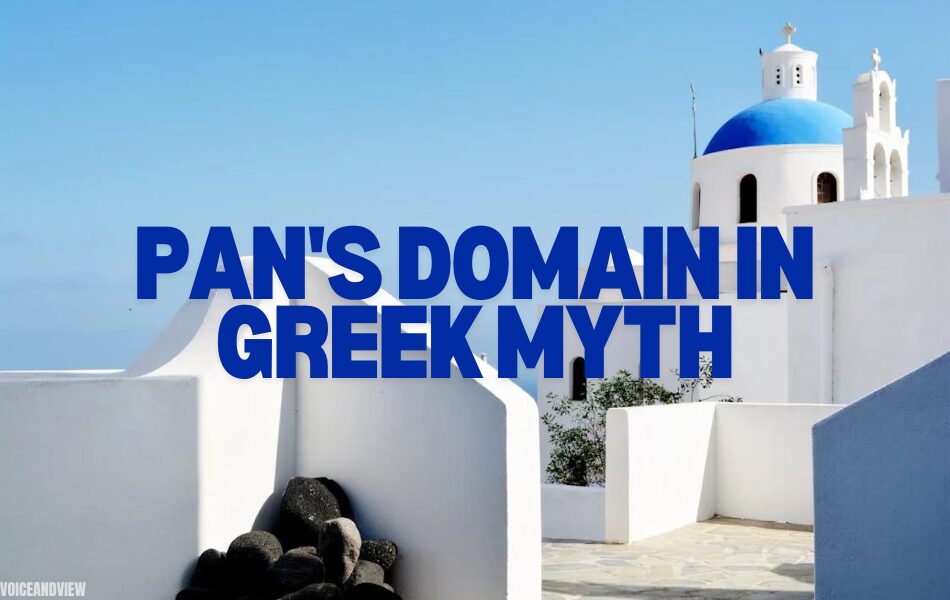Pan’s Domain in Greek Myth NYT: Discover Enigmatic Wonders

Have you ever found yourself staring at a NYT crossword clue, scratching your head in perplexity? One such cryptic puzzle might have led you to the enigmatic question, “Pan’s domain in greek myth NYT.” This seemingly simple phrase hides a world of mythological intrigue and a deep connection to the ancient Greek pantheon.
Pan, the goat-footed god of the wild, holds a unique place in Greek mythology. Often depicted as a half-human, half-goat creature, he is associated with nature, rusticity, and the untamed wilderness. Pan’s domain is not merely a geographical location but a spiritual realm where the forces of nature converge.
The NYT crossword clue, “Pan’s domain in greek myth NYT,” likely appears within a puzzle that explores themes of nature, mythology, or ancient Greece. Understanding the context of the clue can provide valuable insights into its potential answer.
Contents
- 1 Pan: The Goat-Footed God of the Wild
- 2 Pan’s Domain: The Arcadian Mountains
- 3 Pan’s Connection to the NYT Crossword Clue
- 4 Pan’s Enduring Legacy
- 5 Conclusion: Pan’s domain in greek myth NYT
- 6 FAQs
- 6.1 Q: What is Pan’s domain in Greek myth NYT?
- 6.2 Q: Who is Pan in Greek mythology?
- 6.3 Q: What is the significance of the NYT crossword clue “Pan’s domain in Greek myth NYT “?
- 6.4 Q: How does Pan’s mythology continue to influence popular culture?
- 6.5 Q: Are there any modern-day beliefs or traditions associated with Pan?
Pan: The Goat-Footed God of the Wild
Origin and parentage
Pan, the god of the wild, was born from the union of Hermes, the messenger god, and the nymph Dryope. His birth was shrouded in mystery, as some accounts claim he was born in the Arcadian mountains, while others suggest he appeared suddenly in the forest.
Attributes and appearance
Pan is often depicted as a playful and mischievous deity. His most striking feature is his goat-like lower body, which includes hooves and a tail. His upper body is human, though he often wears a wreath of pine needles and carries a syrinx, a musical instrument he is said to have invented.
Symbolism
Pan’s symbolism is deeply intertwined with nature. His goat-like form connects him to the wild, untamed aspects of the natural world. He is often associated with forests, mountains, and the pastoral life. Pan’s playful and mischievous nature reflects the unpredictable and sometimes chaotic forces of nature. Moreover, his connection to music symbolizes the harmony and beauty that can be found in the natural world.
Pan’s Domain: The Arcadian Mountains
Arcadia: A pastoral paradise
Pan’s domain is primarily associated with the region of Arcadia in ancient Greece. This idyllic landscape, often described as a pastoral paradise, was renowned for its lush forests, rolling hills, and crystal-clear streams. Arcadia was a place where shepherds tended their flocks and farmers cultivated their fields, living in harmony with the natural world.
Pan’s role as protector
As the god of the wild, Pan was the protector of the Arcadian shepherds and their flocks. He guarded them against dangers such as predators and storms, ensuring the safety and prosperity of the pastoral lifestyle. Pan’s presence brought a sense of security and well-being to the Arcadian people.
Pan’s association with music
Pan is also known as the inventor of the syrinx, a musical instrument consisting of reeds of varying lengths. The syrinx, often referred to as panpipes, became a symbol of Pan’s connection to nature and music. As a patron of music, Pan was believed to inspire musicians and poets, and his melodies were said to evoke the beauty and harmony of the natural world.
Pan’s Connection to the NYT Crossword Clue
Analyzing the clue
To unravel the mystery of the NYT crossword clue, “Pan’s domain in greek myth NYT,” it is essential to analyze its component parts. The phrase “Pan’s domain” clearly refers to the territory or realm associated with the god Pan. The term “Greek myth” indicates that the answer is rooted in ancient Greek mythology.
When analyzing the clue, it is helpful to explore synonyms and related terms that might be relevant. For example, “Pan’s domain” could also be expressed as “Pan’s territory,” “Pan’s realm,” or “Pan’s kingdom.” Additionally, terms like “Arcadia,” “wilderness,” or “nature” might also be considered as potential clues to the answer.
Offering multiple possible answers
Given the various interpretations and synonyms associated with the clue, there may be multiple possible answers. Some potential solutions might include:
- Arcadia: As Pan’s primary domain in Greek mythology, Arcadia is a strong contender for the answer.
- Nature: Pan’s close association with nature could also make “nature” a viable option.
- Wilderness: Given Pan’s role as the god of the wild, “wilderness” might be another possible answer.
It is important to note that the correct answer will depend on the specific context of the crossword puzzle and the other clues provided. By carefully analyzing the clue and considering alternative interpretations, you can increase your chances of finding the correct solution.
Pan’s Enduring Legacy
Modern references to Pan
Pan’s mythology has continued to captivate and inspire artists, writers, and filmmakers throughout history. His image can be found in various forms of popular culture, from literature and art to music and film. For example, Pan’s playful and mischievous nature has been explored in countless stories and novels, while his connection to nature has been depicted in paintings and sculptures.
Pan’s role in contemporary folklore
While Pan’s mythology originated in ancient Greece, his influence can still be felt in contemporary folklore and belief systems. In some cultures, Pan is associated with the idea of a “wild man” or “wood spirit,” a mysterious and often elusive figure that inhabits forests and other natural areas. Some people believe that encountering a Pan-like creature can be a sign of good fortune or a connection to the natural world.
Conclusion: Pan’s domain in greek myth NYT
In conclusion, the crossword clue “Pan’s domain in greek myth NYT” offers a glimpse into the rich and complex world of ancient Greek mythology. Pan, the goat-footed god of the wild, is a fascinating figure whose domain, primarily associated with the Arcadian mountains, reflects his connection to nature and the pastoral lifestyle.
For those eager to delve deeper into the mythology of Pan and ancient Greece, there are numerous resources available. Classic texts such as Ovid’s “Metamorphoses” and Hesiod’s “Theogony” offer detailed accounts of Pan’s mythology. Additionally, modern scholarly works and online resources can provide valuable insights into the cultural and historical context of Pan’s stories.
We invite readers to share their thoughts, experiences, or knowledge related to Pan or the crossword clue. Have you encountered Pan in your own life, perhaps in a dream, a piece of art, or a personal experience? Your insights can contribute to a deeper understanding of this timeless mythological figure and his enduring legacy.
FAQs
Q: What is Pan’s domain in Greek myth NYT?
A: Pan’s domain is primarily associated with the region of Arcadia in ancient Greece. This idyllic landscape was renowned for its lush forests, rolling hills, and crystal-clear streams. As the god of the wild, Pan was the protector of the Arcadian shepherds and their flocks.
Q: Who is Pan in Greek mythology?
A: Pan is a goat-footed god in Greek mythology associated with nature, rusticity, and the untamed wilderness. He is often depicted as a playful and mischievous deity, and his connection to music is symbolized by the syrinx, a musical instrument he is said to have invented.
Q: What is the significance of the NYT crossword clue “Pan’s domain in Greek myth NYT “?
A: The NYT crossword clue “Pan’s domain in Greek myth NYT” is a cryptic puzzle that requires knowledge of ancient Greek mythology. The answer is likely related to the region of Arcadia, where Pan resided, or to the broader concept of nature and the wild.
Q: How does Pan’s mythology continue to influence popular culture?
A: Pan’s mythology has continued to captivate and inspire artists, writers, and filmmakers throughout history. His image can be found in various forms of popular culture, from literature and art to music and film. For example, Pan’s playful and mischievous nature has been explored in countless stories and novels, while his connection to nature has been depicted in paintings and sculptures.
Q: Are there any modern-day beliefs or traditions associated with Pan?
A: While Pan’s mythology originated in ancient Greece, his influence can still be felt in contemporary folklore and belief systems. In some cultures, Pan is associated with the idea of a “wild man” or “wood spirit,” a mysterious and often elusive figure that inhabits forests and other natural areas. Some people believe that encountering a Pan-like creature can be a sign of good fortune or a connection to the natural world.








